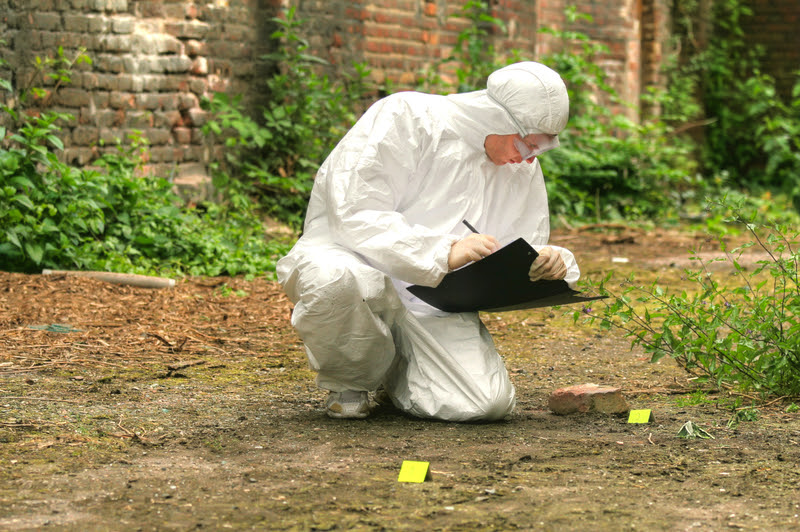All deaths reported to the Medical Examiner are investigated by Medical Forensic Investigators (MFI)- registered physician's assistants. The extent of the investigation into a reported death is highly variable and depends on the individual case. Some cases can be investigated over the telephone, while others require in-person scene investigation by an investigator. Medical Forensic Investigators respond to the homes of deceased persons as required on a fairly routine basis, regardless of whether the death eventually becomes a medical examiners' case.

Law enforcement and the District Attorney’s Office rely on Medical Forensic Investigators (Medical Examiner personnel) to draw blood from DWI (driving while intoxicated) suspects on an emergency basis within two hours from the time of arrest, twenty-four hours a day. The results from the toxicological analyses performed on these blood samples become evidence at the trials of those charged with DWI-related crimes.
Medical Examiners (MEs; forensic pathologists) perform postmortem examinations on decedents and provide testimony for criminal, civil and grand jury proceedings. In addition, Medical Examiners are actively involved in teaching Stony Brook pathology residents who are required to rotate through the medical examiners office as part of their post-graduate training. Additional teaching duties include instruction to Winthrop Hospital pathology residents, medical students from Stony Brook School of Medicine and West Virginia School of Osteopathic Medicine, and undergraduate students from Hofstra University, University of New Haven, University of Hartford, and Iona College.
Our Medical Forensic Investigators and Medical Examiners have actively participated in County-wide disaster preparedness. The Suffolk County Office of the Medical Examiner (SCME) is an active partner in the Regional Catastrophic Partner Team. The SCME has taken the lead for the County by accepting the responsibility of providing the logistics and management of dealing with large numbers of deceased individuals in the event of a mass fatality incident (e.g., pandemic flu), thereby relieving the hospitals and other health care institutions of tasks too overwhelming for them to manage. Toward this goal, the Supervisor of the MFIs has trained and amassed extensive experience in such catastrophe management programs beginning with the TWA Flight 800 disaster in 1996. He has continued to remain an active participant in county-wide disaster drills and tabletop discussions, as well as attending extramural seminars and conferences relating to mass disaster management.
The following workload statistics reflect all cases reported to the SCME and the resulting disposition of those cases.
Non-Jurisdiction Cases –Deaths that are reported to the Medical Examiner’s Office but are ultimately determined not to fall under the jurisdiction of the Medical Examiner and do not require Medical Examiner involvement.
Cremation Clearances – All cremations performed on decedents in Suffolk County require review and clearance from the Medical Examiner’s Office.
Certified Cases –Deaths reported to the Medical Examiner’s office that do fall under the jurisdiction of the Medical Examiner; however, a forensic examination is not required.